Advisory Board – Inside Interviews
The Great Lakes ROTA-RC Advisory Board provides their knowledge, critical thinking and analysis to advise the technical assistance aspects of the leadership team. Advisory Board members serve as ambassadors and advocate for the program(s), providing a connection to, and ongoing exchange of, information and ideas with practitioners in the field of prevention, harm reduction, mental wellness, as well as with other partners who serve rural communities.
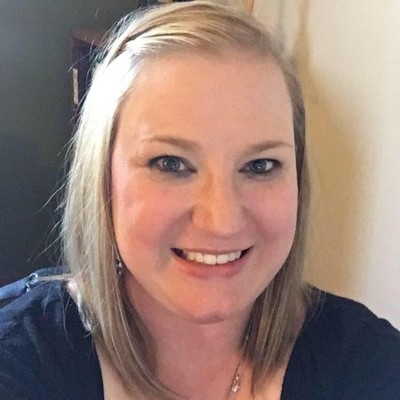
Melissa Aaron, MSW, LSW
Clinical Coordinator, Substance Use Services, Centerstone
Representing Illinois
Melissa Aaron is a Licensed Clinical Social Worker. Melissa graduated with her Masters of Social work from Southern Illinois University in 2015. Melissa is a Clinical Coordinator with Substance Use Services at Centerstone. Melissa has previously worked as a hospital social worker, with Returning Citizens and their families, and worked in Child Welfare. Melissa is dedicated to bringing awareness and compassion to mental health and substance use issues.
Inside Interview
Tell us a little bit about you and how you got connected to prevention work.
Briefly tell us about your organization and your community. What is the mission of your work?
What inspires you to help others in the community?
What is a mental health or substance use resource you find to be helpful as a professional working in this field?
What is a resource you recommend to a community member who may want information about mental health or substance use?
What tips (2 – 3) can you share about building mental health and substance use resources for the unique needs of rural communities?
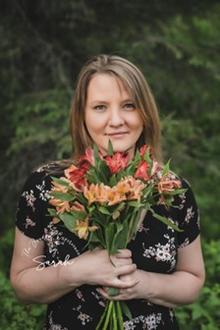
Cynthia Baade, C.P.R.S.R
Certified Peer Recovery Specialist at Project Clean Start
Representing Minnesota
Cynthia Baade, is a certified Peer Recovery Specialist (CPRSR), starting her career journey as a Certified Peer Recovery Specialist (Recovery Coach) at Project Clean Start in Grand Rapids, MN.
Inside Interview
Cynthia, tell us a little bit about you and how you got connected to prevention work. I am the founder of Mission Restart in Grand Rapids, MN. I was glad to get connected with the University of Minnesota Extension, who were supportive in helping with peer recovery training resources and training. With UM Extension support, we have been able to train peer recovery specialists every year and this year alone, we’ve gained an additional 12 more specialists! I also serve on the Minnesota Certification Board, in addition to my Advisory Board work with GL ROTA-RC. When I’m not working as a peer recovery specialist, or supporting a call line, or volunteering my time on a board, then I am a I am a wife and mother, who is a person in long term recovery. I am proud and dedicated to my large family that consists of my husband and our 6 children.
Briefly tell us about your organization and your community. What is the mission of your work? Mission Restart is in a rural area, it is an RCO, which means it is built from individuals who are in recovery, offering non-clinical support to those in recovery. Peer recovery is very new to the Grand Rapids community. Supportive, peer recovery services look like talk support, offering a warm referral to services and resources, and it can be a one time contact or ongoing, depending on the needs of those walking through the door. All of Mission Restart peer recovery specialists are volunteers, and there are days it can be unbelievably busy but they always answer the call for help; our services are 24/7. We operate through First Call for Help 211. It may start with phone support and that’s all someone needs, or it can be one to one crisis support and our crisis counselors step in and respond. At Mission Restart we just had our second annual “Walk for Recovery” which was a huge success. We were able to engage large corporate sponsors to support the event which facilitated a healthy, family activity for the community to participate in, and support, recovery friendly activities. There were raffle prizes, for adults and children, and a meal afterwards. Mission Restart hopes to continue the tradition annually.
What inspires you to help others in the community? I want to help because I got that help. I had people who believed in me when I didn’t believe in myself. Not everybody gets that experience. I had a great team and a great service after. When I was pregnant a great group of people helped me to keep going. I thought about people who were in the community around me. What about people without kids? What about men? There are so many barriers that prevent people from getting in the way of people recovering, while they wait to see if they qualify for this program or that, only to be told “no.” I’ve been in that place and I don’t want other people to feel that way. So I make those calls and I get frustrated with the system and I keep on working through the challenges anyway until we find the resources we need and another person finds their way through. I want people to know they matter and that recovery is possible.
What is a mental health or substance use resource you find to be helpful as a professional working in this field? First Call for Help 211; they are a huge resource in Minnesota, they have supported our cause, they have access to the crisis response teams and resources all over the state in Minnesota. SAMHSA National Helpline 988 is always a number we give out. Harm Reduction Sisters in Northern Minnesota is resource we have used a lot to support people.
What is a resource you recommend to a community member who may want information about mental health or substance use?
First Call for Help 211 (211 services are available in Minnesota, Wisconsin, Michigan, Illinois, Ohio, and Indiana, but offer a variety of services and supports by state. They can be found online and by phone)
SAMHSA Helpline 988 – whether its to talk through a hard time, deal with crisis, or get resources this line is helping so many people
Cooperative Extension Office(s) – reach out to the programming in your county or state, they are a valuable resource!
What tips (2 – 3) can you share about building mental health and substance use resources for the unique needs of rural communities?
- Reach out. I have had so much guidance from the professionals that came before me.
- Attend events and other gatherings for professionals.
- Talk to those receiving the services.
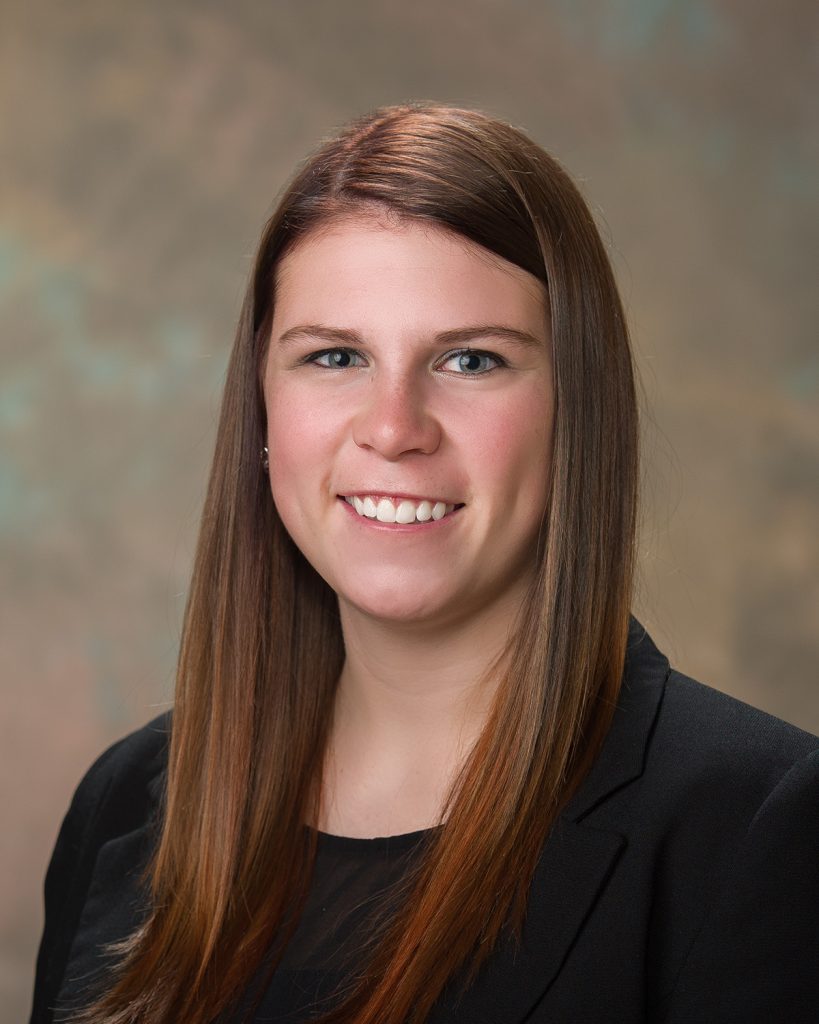
Megan Barnett, PS, CHES
Manager, Community Health
Representing Wisconsin
Meagan Pichler-Barnett is a Community Health Manager for the Marshfield Clinic Health System Center for Community Health Advancement. She is also a practicing Certified Prevention Specialist in the state of Wisconsin and a Certified Health Education Specialist. Meagan is actively engaged with the Northwoods Coalition.
Inside Interview
Meagan, tell us a little bit about you and how you got connected to prevention work. Growing up in Green Bay, my father was very involved in ministry, in fact he started a homeless shelter. My priority as a young person was to take the guest’s minds off of their day. That human to human connection had a huge impact on me. Learning their stories and hearing those repeated, underlying connections they had to substance use stuck with me. I went on to school knowing that I wanted to help people address those connections. Prevention made the most sense. Although I had friends and knew people that went into nursing, social work, and many other helping professions, to me it just felt right to work further upstream to support people. I wanted to work smarter, not harder to help people find find their voice. Now I get to work across a continuum of care and we’re all working together to make changes.
Briefly tell us about your organization and your community. What is the mission of your work? Whether I’m working in my role as a prevention specialist or with the Northwoods Coalition, there really seems to be a connection to “strong coalitions, healthy communities.” Within prevention we are always helping people move towards the recovery trajectory, it just depends where in my different roles I am approaching it. Moving at the community level, I am one to one, hearing individual needs. Within broader systems work, we are looking at systems level and trying to make the environments work better around and for people.
What inspires you to help others in the community? The guests that I met at the homeless shelter when I was younger gave me that human connection that was rewarding and enriching and helped me connect to my purpose early on. The role my family played that inspired me to do this work; being present for others in service was just part of my family life growing up. I also think consistently about one of the first recovery coaches I trained; her personal life story sits deeply with me and grounds me in this work. Being present with this recovery coach and seeing all she has achieved, watching her grow to be her best self, helps remind me how important and valuable it is to give voice to others is – the immense internal reward it is to do this work. To see others succeed is deeply rewarding.
What is a mental health or substance use resource you find to be helpful as a professional working in this field? Ahhh, what a hard question! There are many great resources out there. CADCA is the biggest resource that I lean on the hardest. It has a lot of materials, connections, and links; it’s my go to. I loves how they advocate for prevention coalitions. Now is a time to give them additional support for all they do to support coalition work.
What is a resource you recommend to a community member who may want information about mental health or substance use? The Prevention Technology Transfer Center PTTC for our regional area, Great Lakes ROTA-RC as a regional hub and connector, and Alliance for WI Youth as state wide coalition. Each has their place in the work and each offers for something different. For anyone struggling – 211 definitely has it figured out!
What tips (2 – 3) can you share about building mental health and substance use resources for the unique needs of rural communities?
- “Nothing for us without us” – Making sure you have people with lived experience at the table. Make sure they are in the process from the beginning.
- Do an environmental scan of your community. So often we are duplicating efforts. We have to work smarter, not harder.
- Don’t overlook 100 cups of coffee. Its important to get to know people. Its what will make your coalition, your community stronger. Its what determines buy in to where you want to go in your efforts.
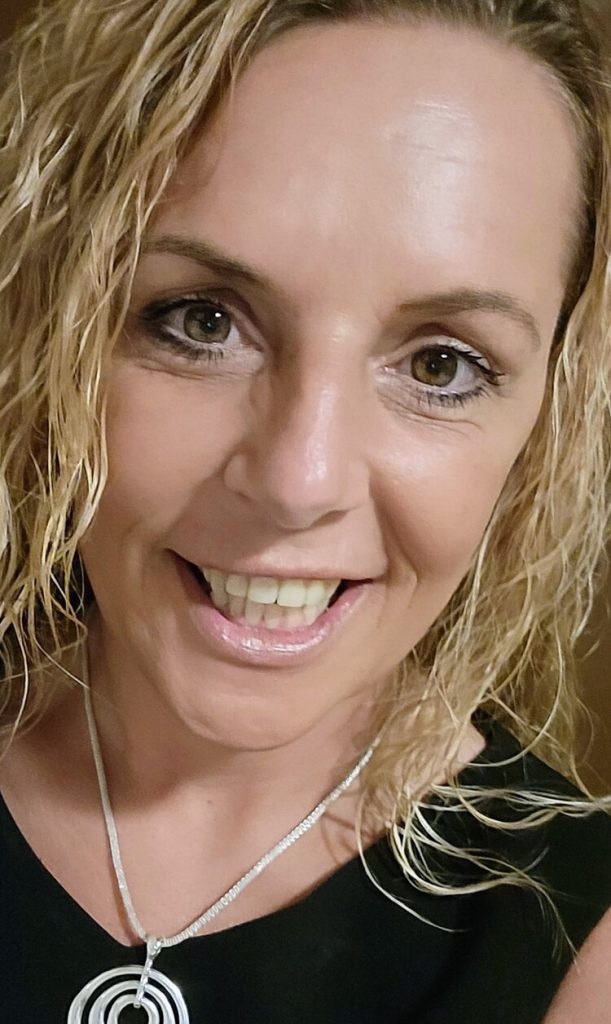
Charmin Gabbard, BS, CADAC II
Executive Director
Representing Indiana
Charmin Gabbard is the Executive Director of the Connection Café, a Recovery Community Organization based in Fayette County, Indiana. Charmin has both professional expertise and personal lived experience with substance use disorder, and she has been a champion for recovery communities.
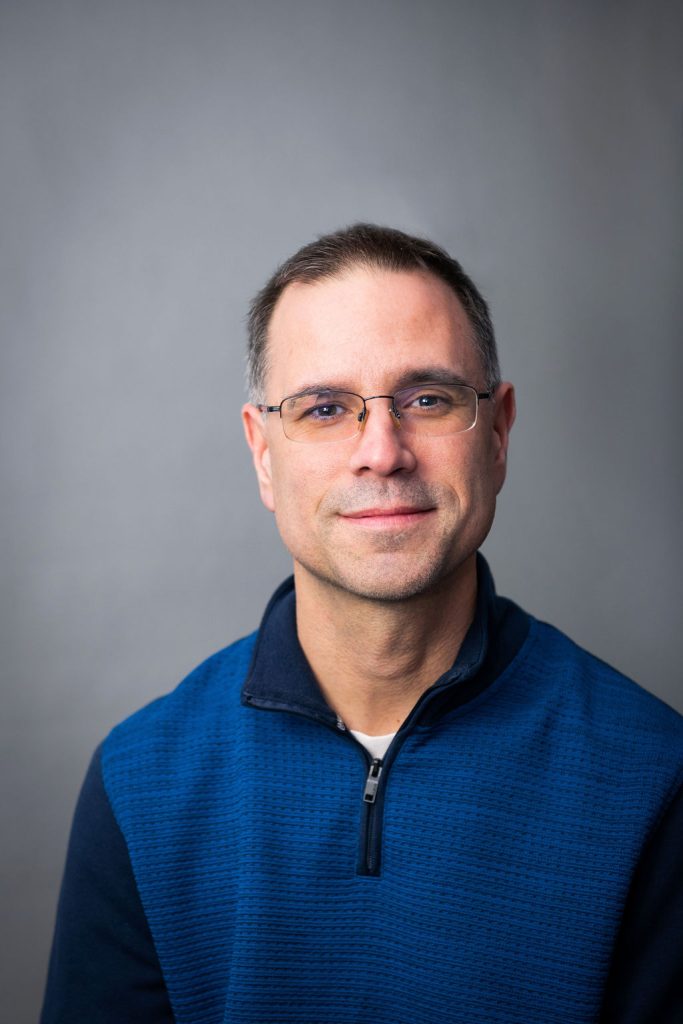
Tory Werth, LMSW, CAADC, CCS-DP, RCP
Clinical Therapist, Recovery Coach, Trainer
Representing Michigan
Tory serves as the clinical supervisor for an outpatient treatment center in Northern Lower Michigan. Tory is a Licensed Masters Social Worker, Certified Advanced Alcohol Drug Counselor, Recovery Coach and also serves on the board for Recovery NOTES, and Community Recovery Alliance. Tory is also a person in long-term recovery since the age of 17, and will be celebrating 30 years in recovery on December 4, 2024.
Inside Interview
Tell us a little bit about how you got into recovery work? Ever since I had a personal experience with recovery, I’ve looked for ways to get involved. When I was seventeen, I experienced the detention center system. When I came through this and started getting help to get sober, I wanted to become a volunteer too. This lead to more experiences in the field of recovery and I’ve been working and volunteering in the recovery realm since 1996.
Briefly tell us about your organization and your community. What is the mission of your work?
I’m now working in an outpatient setting – I love this work because the people we see are out in the community they live in, so we are helping to initiate and sustain change. We work alongside our clients and we meet them wherever they are at in the change process. Serving on two boards within the community is one of the highlights of my life. I love being a part of creating new opportunities for those in recovery, and with addiction, in our community. It’s building recovery capital.
I currently serve on the board for Community Recovery Alliance – they offer free recovery resources and places where people hang out and get coaching. They also offer multiple pathways of recovery. Its not a one size fits all approach and the team is tremendous. I also serve on the board for Recovery NOTES – which is a monthly open mic night for people in recovery, allies and families that provides music, poetry, storytelling and an array of talent in our community. NOTES stands for “New Opportunities to Enjoy Sobriety. COVID slowed it for a while, but its growing again.
What inspires you to help others in the community? I remember when I got sober and I felt good in my own skin for the first time. I felt serenity. It was then that I realized recovery was possible for me. It was the first time I could see how other people were doing it [achieving sobriety]. It was that feeling that helped me on my journey, but it also inspired me to want to help others.
Seeing how other people working in recovery can be a support for those recovering… I love that experience of watching people go through the experience of positive changes. I love seeing other people get their family member back. The experience that other people can recover and change, that change is possible. Is the rainbow for others to see that they can do it too. Millions of others have.
What is a mental health or substance use resource you find to be helpful as a professional working in this field?
Treating people with kindness and helping with basic needs and resources can be the catalyst for a whole new life for someone.
NMSAS (Northern Michigan Substance Abuse Services) people can accessing free coaching and free training.
Michigan state offers the free Peer Support Warm Line the Michigan Peer Warmline is a statewide warmline for Michiganders living with persistent mental health and/or substance use conditions. The warmline will connect individuals with certified peer support specialists who have lived experiences of behavioral health issues, trauma or personal crises, and are trained to support and empower the callers.
What is a resource you recommend to a community member who may want information about mental health or substance use?
Recovery Community Organizations (RCOs) – these are growing around the country. Find out if you have one in your community.
PHIP – pre-paid, in-patient program. These are specific to Michigan.
What tips (2 – 3) can you share about building mental health and substance use resources for the unique needs of rural communities?
- Know what is happening currently.
- Getting involved with groups that are already involved with doing something.
- If needed, organize and create something to fill the gaps, if there is something that is needed and there is nothing happening.
- Find enthusiastic and creative people who share your passion and vision to do the work, and want to make a difference.
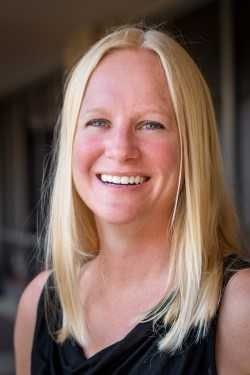
Jeanne Pulvermacher
Outreach Program Director, CHESS
Regional Partner
Jeanne Pulvermacher is the assistant director of the Great Lakes Addiction (ATTC), Mental Health (MHTTC), and Prevention (PTTC) Technology Transfer Centers based at the UW–Madison Center for Health Enhancement Systems Studies (CHESS). She also serves as the co-director of the Great Lakes ATTC.
Inside Interview
Tell us a little bit about your engagement with the project so far. I have been very happy to be part of the project and can’t believe its already coming up on one year of the grant! The ROTA-RC is doing a great job getting connected and has been building a good partnership with the TTCs.
Briefly tell us about your organization and your community. What is the mission of your work? The mission and vision of the ATTCs is to accelerate the adoption and implementation of evidence-based and promising addiction treatment and recovery-oriented practices and services; Heighten the awareness, knowledge, and skills of the workforce that addresses the needs of people with substance use or other behavioral health disorders; and foster regional and national alliances among culturally diverse practitioners, researchers, policy makers, funders, and the recovery community.
What inspires you to help others in the community? I think what inspires me is that communities have people with so many different experiences. It’s great to see people with all of these experiences helping others to make our communities great places.
What is a mental health or substance use resource you find to be helpful as a professional working in this field? HealtheKnowledge.org is an online training resource and they have an A-Z of self-paced learning, a wide range of topics for free and its easy to use.
What is a resource you recommend to a community member who may want information about mental health or substance use? Great Lakes ATTC and MHTTC both have tons of resources, an events calendar, ways that you can be connected, via whatever social media platforms you prefer, and ways to find what you are looking for and what you need if you can’t find it on their site.
What tips (2 – 3) can you share about building mental health and substance use resources for the unique needs of rural communities? The Dept. of Agriculture – DATCP has a lot information on mental health resources for rural communities, and any information on telehealth is beneficial for rural communities.
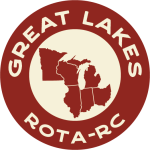
TBD
Beth Weinstock, MD
Representing Ohio
Beth Weinstock M.D. is a poet and physician, but foremost a mother of four whose eldest son Eli died in March of 2021 when he unintentionally ingested fentanyl. In honor of Eli, she and her daughter Olivia founded BirdieLight, an organization dedicated to ending the senseless loss of young people due to fentanyl poisoning.
Inside Interview
Tell us a little bit about you and how you got connected to prevention work.
Briefly tell us about your organization and your community. What is the mission of your work?
What inspires you to help others in the community?
What is a mental health or substance use resource you find to be helpful as a professional working in this field?
What is a resource you recommend to a community member who may want information about mental health or substance use?
What tips (2 – 3) can you share about building mental health and substance use resources for the unique needs of rural communities?





